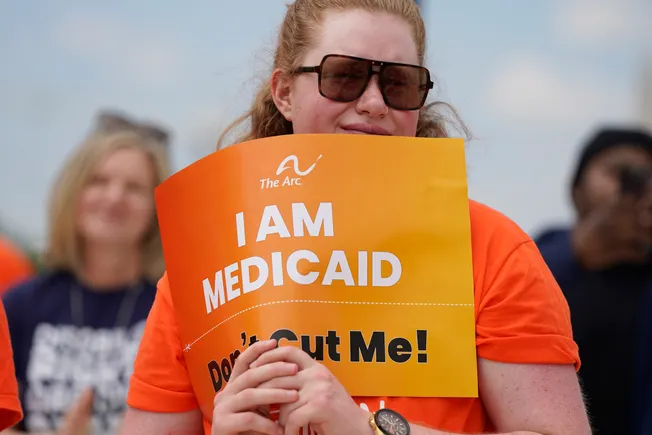Dive Brief:
Cuts to Medicaid under consideration in Congress could threaten healthcare access for young adults, according to a new analysis by the Urban Institute.
Currently, roughly 3 in 10 Americans aged 18 to 24 are covered by Medicaid. Many could lose insurance under Republicans’ proposals, limiting their ability to receive healthcare services and potentially worsening already unstable finances, the progressive policy think tank said in a blog post.
For example, young adults are more likely to face challenges navigating government bureaucracy, so they could struggle to manage work requirements or increased eligibility checks included in the reconciliation bill that passed the House last week, the Urban Institute said.
Dive Insight:
The legislation, which narrowly advanced in the House in a 215 to 214 vote on Thursday, includes a significant overhaul to the safety-net insurance program — cutting about $700 billion from Medicaid over the next decade.
Among other changes, the bill would impose work requirements on able-bodied adults insured through Medicaid, requiring them to work, volunteer or attend school for at least 80 hours each month to continue qualifying for the coverage.
Additionally, states would have to check eligibility for people covered under Medicaid expansion every six months instead of yearly, and beneficiaries with higher incomes would be on the hook for more cost sharing.
The Medicaid provisions could result in 7.6 million people becoming uninsured by 2034, according to a preliminary analysis by the Congressional Budget Office.
People without insurance are less likely to seek out care due to cost, research shows. And though young adults are typically healthier, they still often have reproductive and mental healthcare needs — and they’re likely establishing healthy habits that could prevent illness later in life, according to the Urban Institute report.
Reproductive care, one of the “most critical” services for young adults, could also face disruptions, according to the report. The bill would prohibit Medicaid funds from flowing to nonprofit family planning providers that offer abortions, like Planned Parenthood.
Meanwhile, the bill also freezes provider tax arrangements states use to fund their share of Medicaid spending.
“If they’re less able to draw on this revenue source, states are likely to cut provider payments. This would likely reduce the number of providers that accept Medicaid and the amount of services they provide,” the report’s authors wrote. “That would make it harder for all enrollees, including young adults, to access care.”
Policies that focus on Medicaid expansion, a provision of the Affordable Care Act where states could expand eligibility for the safety-net program, could also hit young adults. Expansion is a key source of coverage for this group, as they have higher rates of uninsurance and are less likely to receive coverage through their jobs, according to the report.
Increased cost sharing for the expansion population could limit access. And the reconciliation bill eliminates a temporary financial incentive for states to implement Medicaid expansion too, possibly deterring more states from adopting the coverage option.
Additionally, the reconciliation bill would require states to regularly update beneficiaries’ address information to prevent people from being enrolled in multiple states. Young adults may be more likely to be disenrolled due to this change, since they move more frequently, according to Urban.
The bill is currently under consideration in the Senate, where some of its provisions could change. Republicans can lose only three votes to successfully send the legislation to President Donald Trump’s desk, and some lawmakers have already raised concerns about the potential cuts fo Medicaid.
GOP leaders are aiming to pass the bill by July 4.


